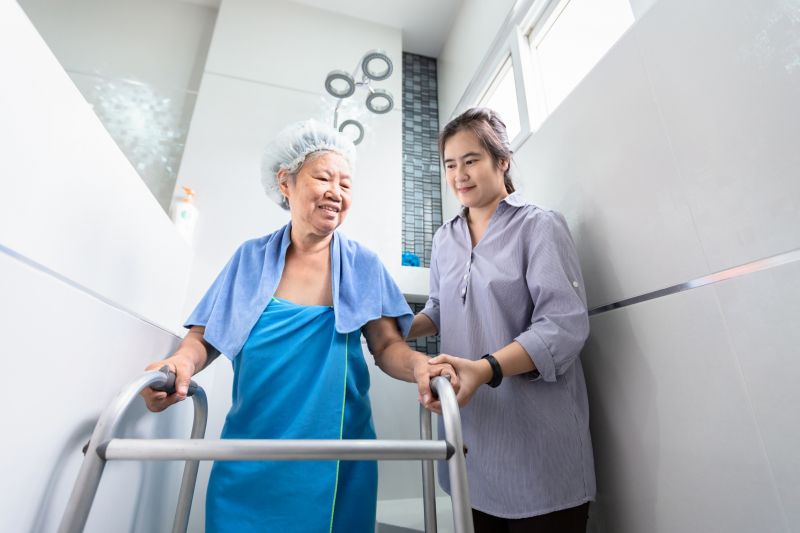Managing Incontinence in the Elderly: A Caregiver's Guide to Maintaining Dignity and Independence while Wearing Adult Diapers
iSavta | 20.03.2023

As a caregiver, taking care of an elderly patient with incontinence can be a challenging task, especially when the patient is wearing an adult diaper. Incontinence is a common problem among the elderly population, and it can significantly affect their quality of life. However, with the right approach and understanding, it is possible to manage incontinence effectively while maintaining the patient's dignity and independence.
Here are some tips and tricks on how to properly take care of an elderly patient with incontinence and wearing an adult diaper:
- Understand the underlying cause of the incontinence: Incontinence can be caused by a variety of factors, including age-related changes in the urinary tract, certain medications, and underlying medical conditions such as diabetes and Parkinson's disease. Understanding the cause of the patient's incontinence can help you tailor your approach and provide more effective care.
- Communicate openly and honestly with the patient: Many elderly patients may feel embarrassed or ashamed about their condition and may be reluctant to discuss it. By approaching the topic in a sensitive and non-judgmental manner, you can help the patient feel more comfortable discussing their incontinence and the challenges they are facing.
- Maintain good hygiene: Incontinence can lead to skin irritation and infection if not properly cleaned. It's important to provide the patient with regular hygiene care such as bathing, changing of clothes, and proper cleaning of the skin around the urinary and rectal areas.
- Check the fit of the adult diaper: Make sure the adult diaper fits properly and is not too tight or too loose. A proper fit will ensure maximum absorbency and prevent leaks.
- Change the adult diaper regularly: Adult diapers should be changed at regular intervals throughout the day, or as soon as they become wet or soiled. This will help prevent skin irritation and infection.
- Use a barrier cream: A barrier cream can help protect the skin from irritation and infection caused by prolonged contact with urine and feces. Be sure to use a cream that is specifically designed for incontinence care and is free of fragrances and dyes.
- Encourage the patient to use the bathroom: Encourage the patient to use the bathroom at regular intervals throughout the day, and encourage them to avoid drinking fluids before bedtime. This can help reduce the likelihood of incontinence.
- Provide emotional support: Incontinence can be a difficult and embarrassing condition for the patient. It is important to provide emotional support and reassurance to the patient, letting them know that they are not alone and that help is available.
- Consider using incontinence products with absorbent cores: Incontinence products with the absorbent cores can provide additional protection against leaks, and can also help reduce odors.
- Seek professional help: If you are having difficulty managing the patient's incontinence, seek the help of a healthcare professional. They can provide additional support and guidance to help you manage the patient's incontinence effectively.
In conclusion, incontinence can be a challenging condition for caregivers to manage, but with the right approach and understanding, it is possible to provide effective care while maintaining the patient's dignity and independence. Remember to communicate openly and honestly with the patient, maintain good hygiene, check the fit of the adult diaper, change it regularly, use a barrier cream, encourage the patient to use the bathroom, provide emotional support, consider using incontinence products with an absorbent core and seek professional help if needed.











